IFEEDER Fodder
-
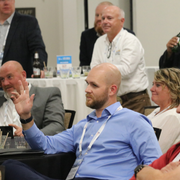
- October 7, 2024
- Kenny Berg Research and Education Fund Adds Value to Liquid Feed Industry
-
In my professional role at the American Feed Industry Association (AFIA), I am fortunate to have a wide variety of roles and responsibilities. Some are rooted in regulations and compliance, and some are closer to the farm gate. My heart will always lie with the latter. Perhaps working with AFIA’s Liquid Feed Committee best allows me to combine my formal education, scientific research and my passion for animal agriculture. It is through the Kenny Berg Liquid Feed Research and Education Fund, managed by the Institute for Feed Education and Research, that I’ve seen many valuable research projects come to life.
- By Paul Davis, Ph.D.
-
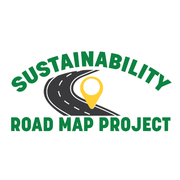
- September 9, 2024
- Where Are Our Customers Focusing Their Sustainability Efforts?
-
It is one thing to consider our own animal food industry’s sustainability efforts, but it is equally important to consider the needs of our customers. We, being members of the feed and pet food industry, are an upstream source within their supply chain, but we may be well positioned to help them meet their identified goals and targets.
- By Lara Moody
-
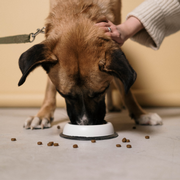
- July 1, 2024
- Updating Our Feed and Pet Food Consumption Data
-
This year, the Institute for Feed Education and Research (IFEEDER) initiated work on a project to update its pet food and feed ingredient consumption reports. The goal is to provide transparent data, quantifying the numerous ingredients used to feed livestock, poultry, fish and pets in the United States. These reports serve as some of the best reference materials available for those discussing matters impacting the U.S. animal food value chain. IFEEDER is the only public charity investing in this kind of research to inform decisions in the animal food industry.
- By Taylor Lekin
-
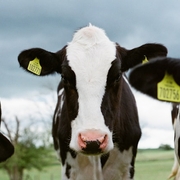
- May 21, 2024
- Should What Matters to Dairy Executives Also Matter to Feed?
-
In a recent report, McKinsey & Company and the International Dairy Foods Association shared findings from their annual survey of dairy executives. Their responses showed that while dairy executives are excited about the opportunity for growth (expected to be 4% annually through 2027, primarily from cheese and yogurt sales) and product innovation, sustainability keeps them up at night and has moved to the center of the conversation.
- By Lara Moody
-
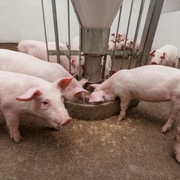
- April 9, 2024
- Enhancing Swine Nutrition: Important Considerations for Updating the Nutrient Requirements of Swine Report
-
Since 1944, the National Research Council, and now the National Academies of Sciences, Engineering and Medicine (NASEM), has published 11 editions of the Nutrient Requirements of Swine. As the primary reference for developing swine diets, the 12th edition will be a valued resource to feed industry members, their customers, swine nutritionists and researchers. The Institute for Feed Education and Research (IFEEDER), with the National Pork Board, National Corn Growers Association and United Soybean Board, is providing funds and industry feedback to support the revision.
- By Guest
-
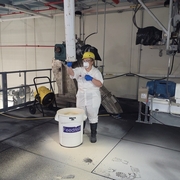
- April 2, 2024
- Preparing for the Next Animal Disease Outbreak – Feed Mill Hygiene and Decontamination
-
Since the outbreak of the porcine epidemic diarrhea virus (PEDV) in 2013, the feed and livestock industries have worked to gain a better understanding of pathogen transmission through feed and the supply chain. Multiple studies have documented the distribution of viral pathogens in mills after contamination, the stability of viruses in feed and ingredient matrices, and virus reduction using chemical mitigants or extended holding times.
- By Guest
-
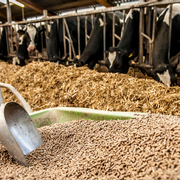
- November 2, 2022
- When You Do Good Work, Sometimes You Make Headlines
-
This week, the Institute for Feed Education and Research (IFEEDER) made headlines for the research work we support at the Clarity and Leadership for Environmental Awareness and Research (CLEAR) Center at the University of California-Davis. Despite detractors’ efforts to discredit research underway, we are proud of the work we do with public institutions, such as the CLEAR Center. We can’t address food security while reducing our environmental impact independently. We must engage.
- By Lara Moody
-
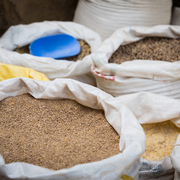
- August 4, 2022
- Livestock Feed is an Undervalued Opportunity for Food Companies to Achieve Sustainability Goals
-
Most of the environmental impact for animal protein is embedded in the feed that animals eat. By reducing feed impacts, food companies have an opportunity to make significant progress toward climate and sustainability goals.
- By Lara Moody
-

- April 5, 2022
- Understanding the Implications of GM-Free Feed
-
In recent years, an increasing number of foods are being marketed and labeled as free of genetically modified (GM) ingredients. For milk, meat or eggs, this means the animals these foods come from are fed exclusively non-GM feed. You need to look no further than current headlines to see the attention given to rising food prices, the need to curb greenhouse gas (GHG) emissions and other sustainability elements.
- By Lara Moody